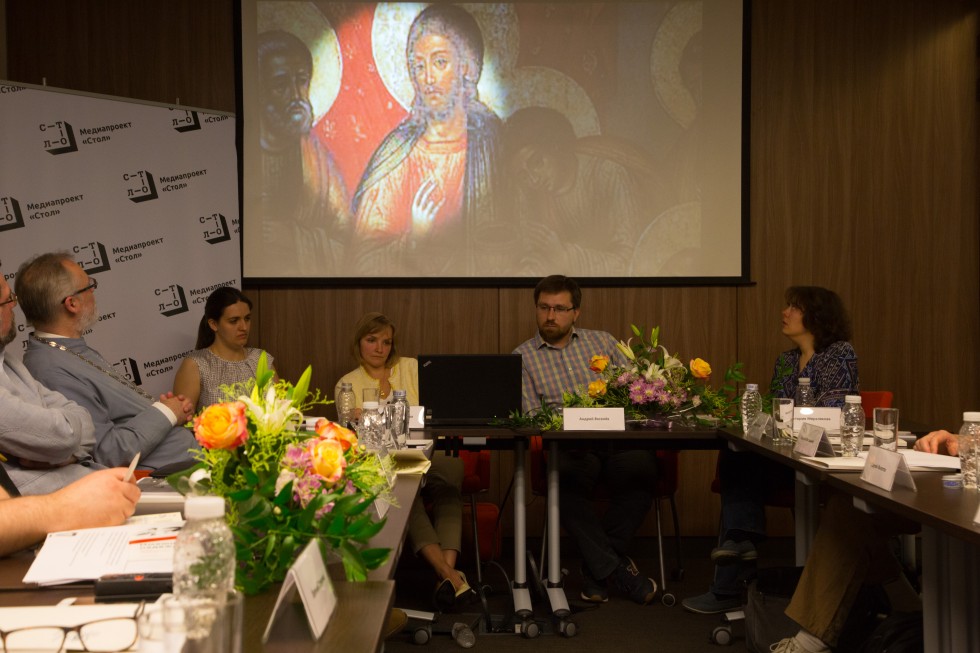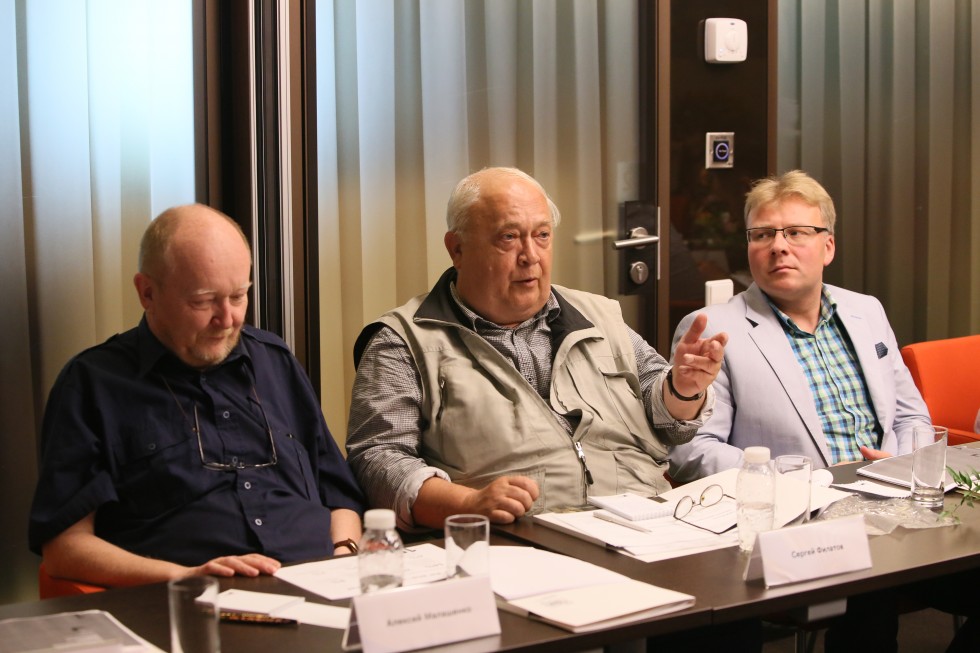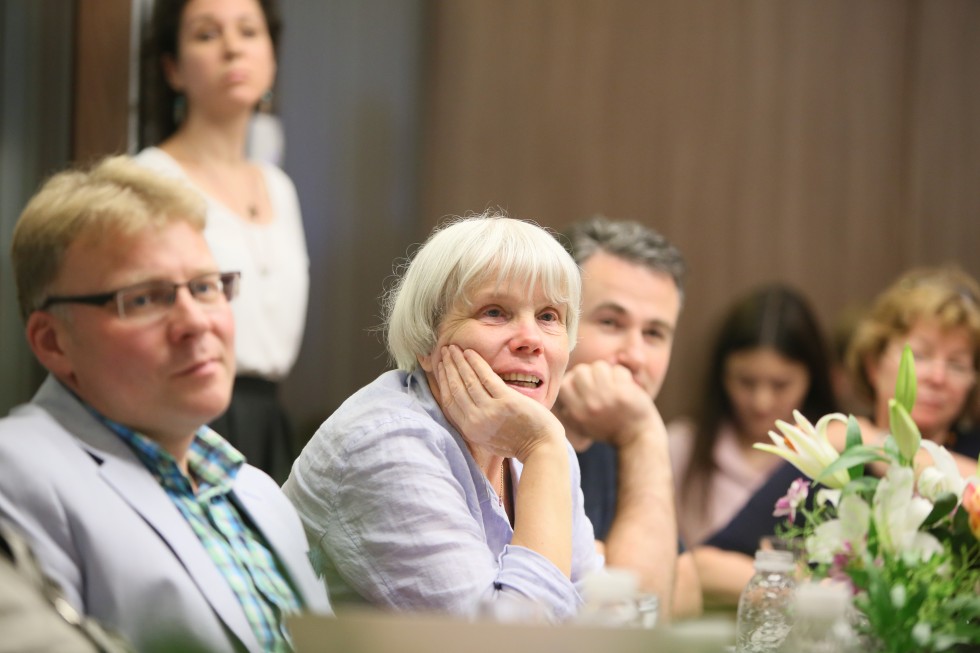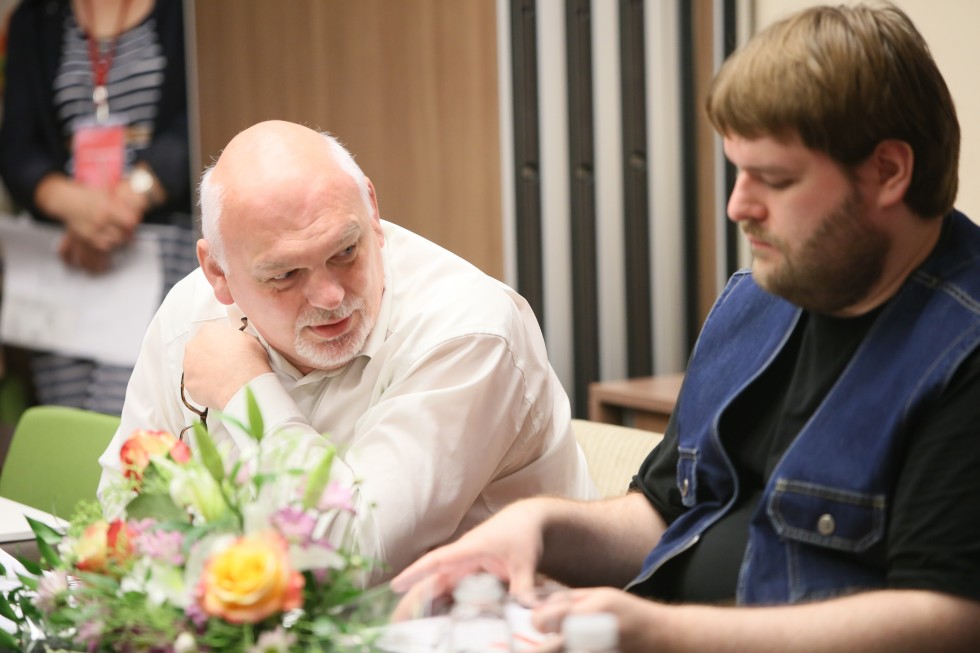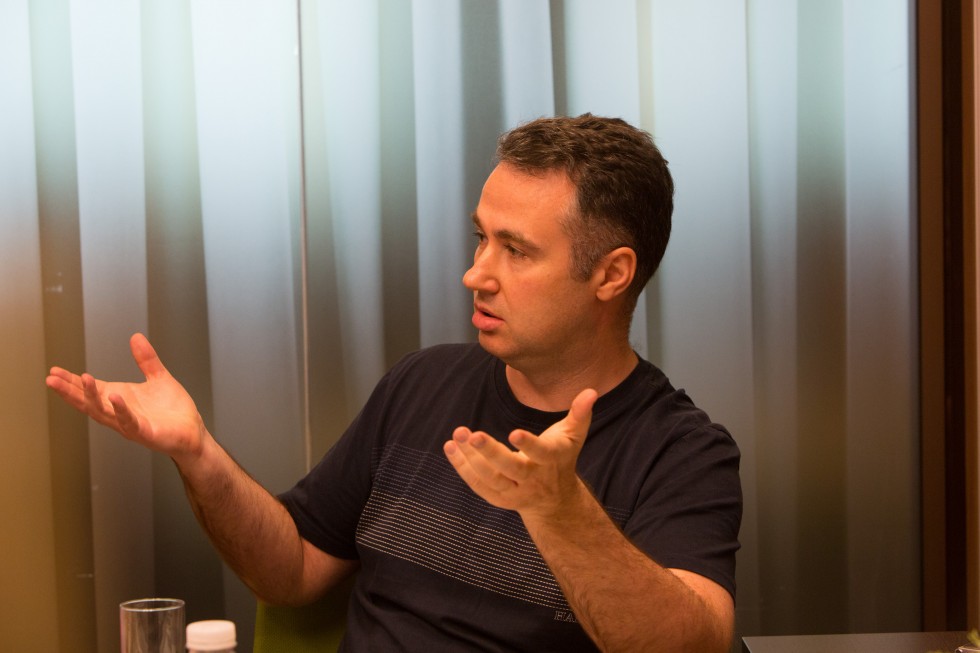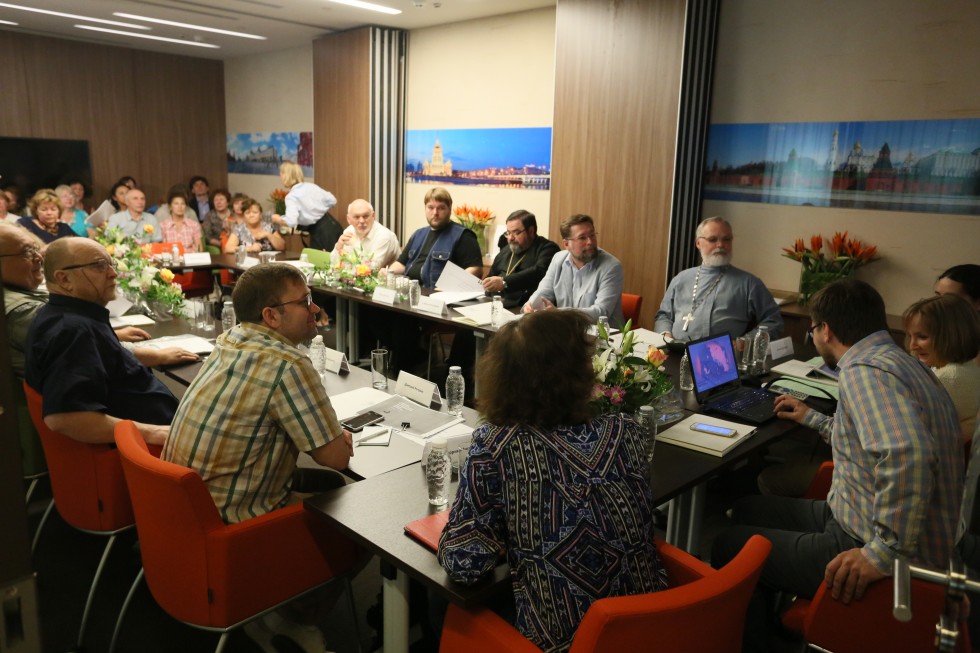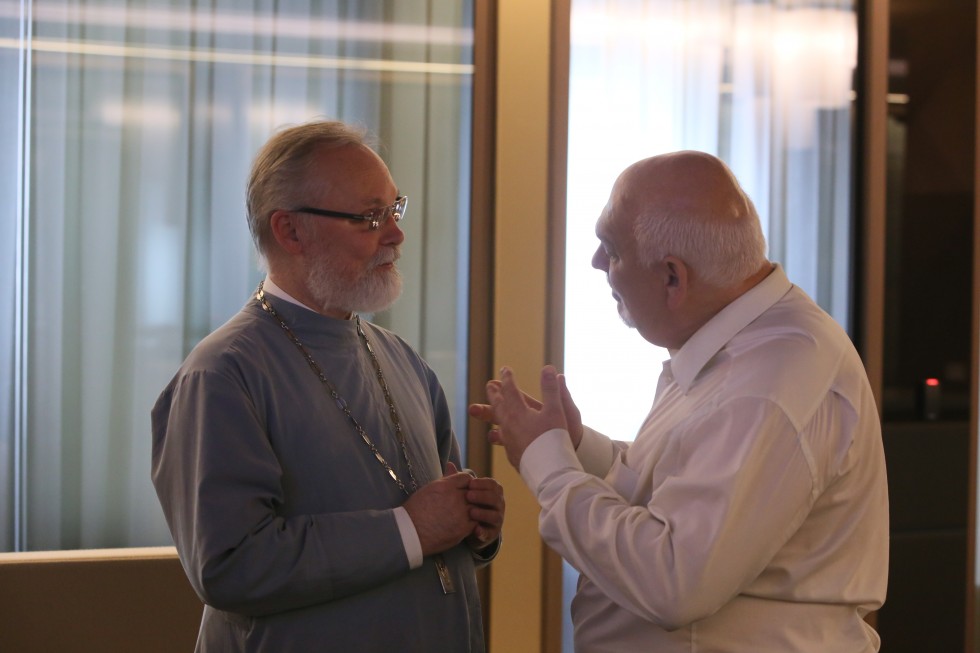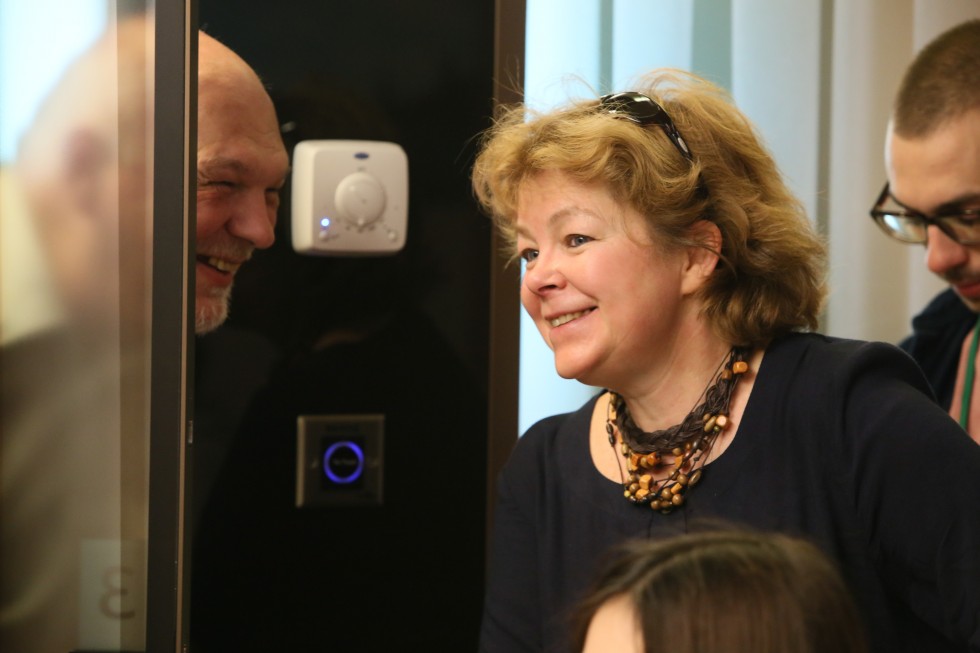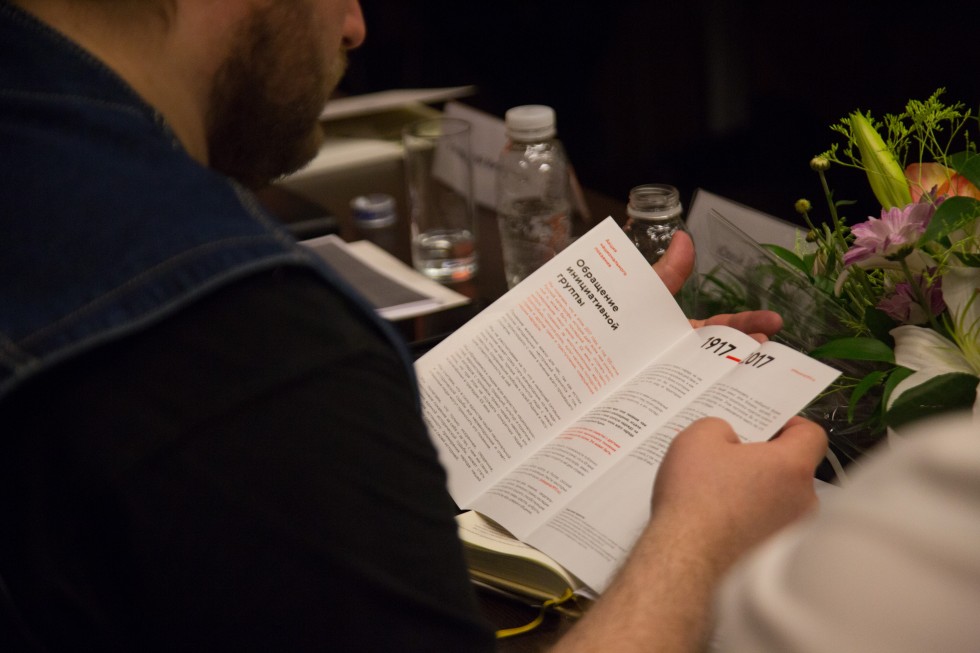Where are our Personal Experiences of the Revolution?
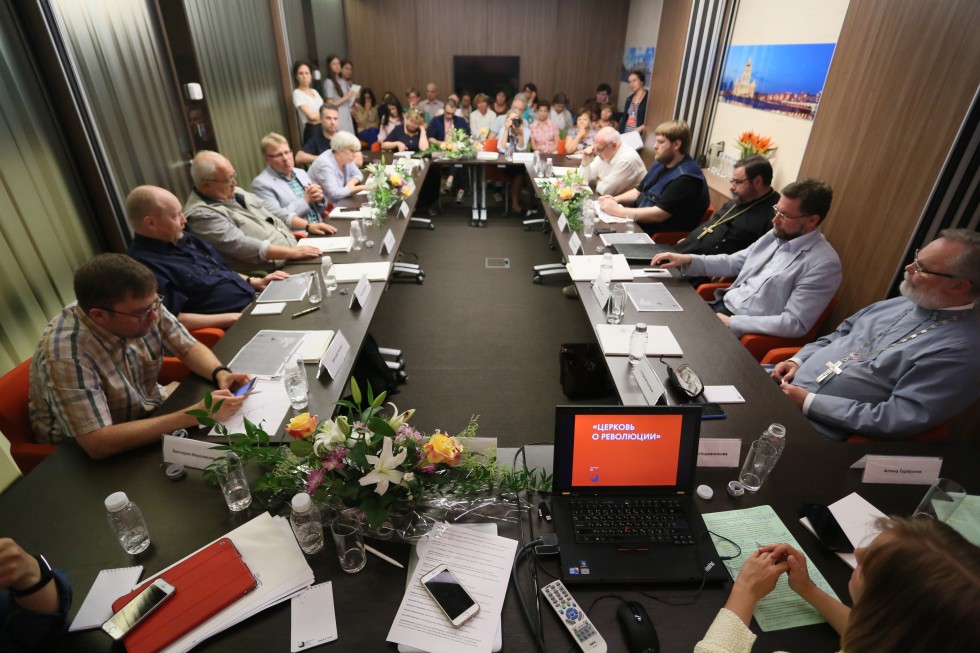
Two media investigations formed the departure point for the discussion. The first investigation was on the topic of the church’s main media approaches to discussing the tragic revolutionary events on the occasion of the 100th anniversary of the Revolution of 1917. This project was a discursive analysis of various pronouncements by church representatives, who included priests, teachers at religious institutions of higher learning, members of Orthodox associations and other people who emphasize that they are speaking from the perspective of their Orthodox faith.
“Our main conclusion was that the discussion is superficial, and this is sad,” said Olga Solodovnikova, the journalist who co-authored the investigation and political editor for the journal “Ogonjok”. According to Solodovnikova, “two thirds of what we hear from these church people is glittering generalities – things like ‘it was such a tragedy’, ‘we need to learn a lesson from it’ – without any particular effort at thinking about what lessons we should learn, or why specifically the tragedy ever occurred, etc.”
Two generally hear one of two versions of the events of 1917. Either objective and unconsidered versions of the events are offered – where facts are restated without any effort to think through what took place – or ideological versions are offered. In the latter case, we are, as a rule, dealing with the concept of “historical continuity”, in which the era of Bolshevism is viewed as “primary” in relation to the history of Russia prior to the Revolution.
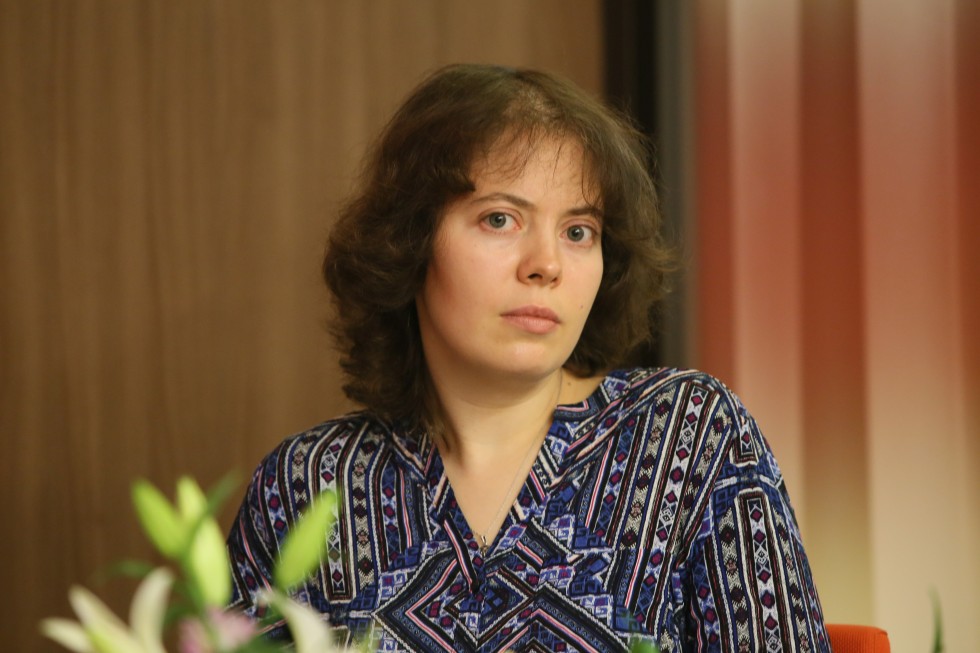
Viktoria Merzlykova
On the Internet and in the context of social networks the situation is slightly different. Viktoria Merzlyakova, who holds a PhD in Cultural Stuydies and is a senior lecturer at the Russian State University for the Humanities and the Russian Presidential Academy of National Economy and Public Administration, as well as an employee of the National Research University Higher School for Economics, presented her study on “Revolution, the Church and Social Media.” Having researched materials in the leading Russian social network “Vkontakte”, she analyzed how themes related to the Revolution and the events of October 1917 are dealt with in internet groups which purport to have an Orthodox focus.
Merzlyakova notes that discussions on social networks do make an attempt to answer the question “what should be done”? Users are specifically searching for a pragmatic, productive answer in relation to specific issues, for example in terms of the restoration of churches or the preservation of the memory of people or local tragedies.
In addition, in studying Internet discussions, Merzlyakova has come to the conclusion that personal experience of revolution, tales of specific people, families and fates, is gravely lacking in the discussion.” “The potential of social networks is being underused specifically in relation to story telling, which could become one of the most valuable and significant additions to the discussion about revolution. The history of the tragic events can be told not only with dry facts, but also dressed in discussion which is understandable and interesting to the reader.
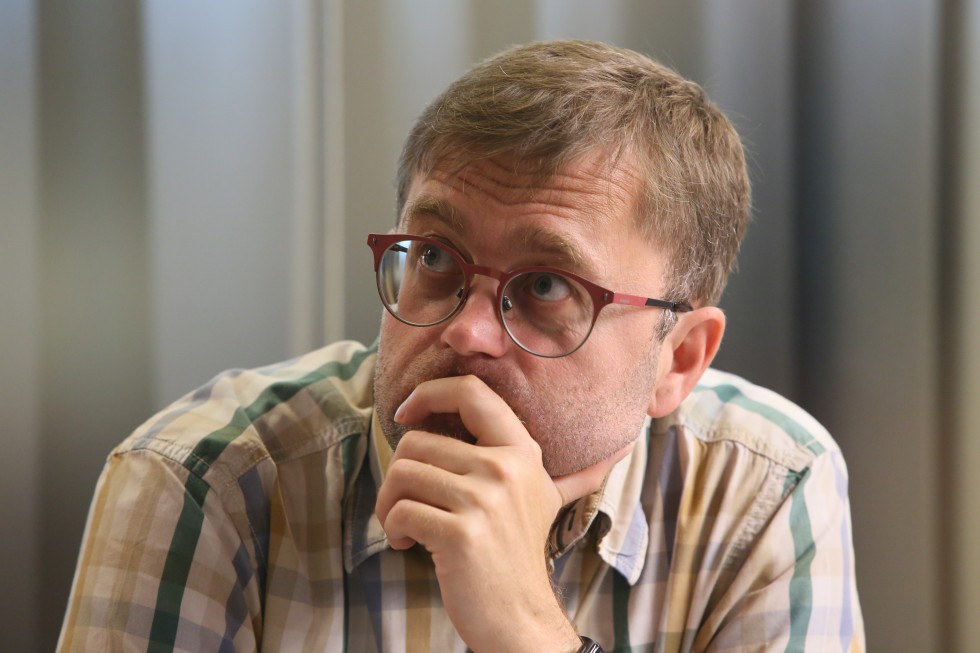
Dmitry Rogozin
Sociologist Dmitry Rogozin, Director of the Social Research Methodology Center of the Russian Presidential Academy of National Economy and Public Administration, says “the events of 1917 were a colossal human tragedy. Tens of thousands of people lost their lives, and it makes sense to look upon this tragedy through personal stories, writing down the lives of our grandfathers and great-grandfathers.” Rogozin underscored the fact that the events of 1917 are not only 100-year-old history, but also have direct meaning and impact for us today. “If something affected my father or my grandfather, then it is recent history and still right next door – in fact, it is part of our present; we are all still living in this history,” he said.
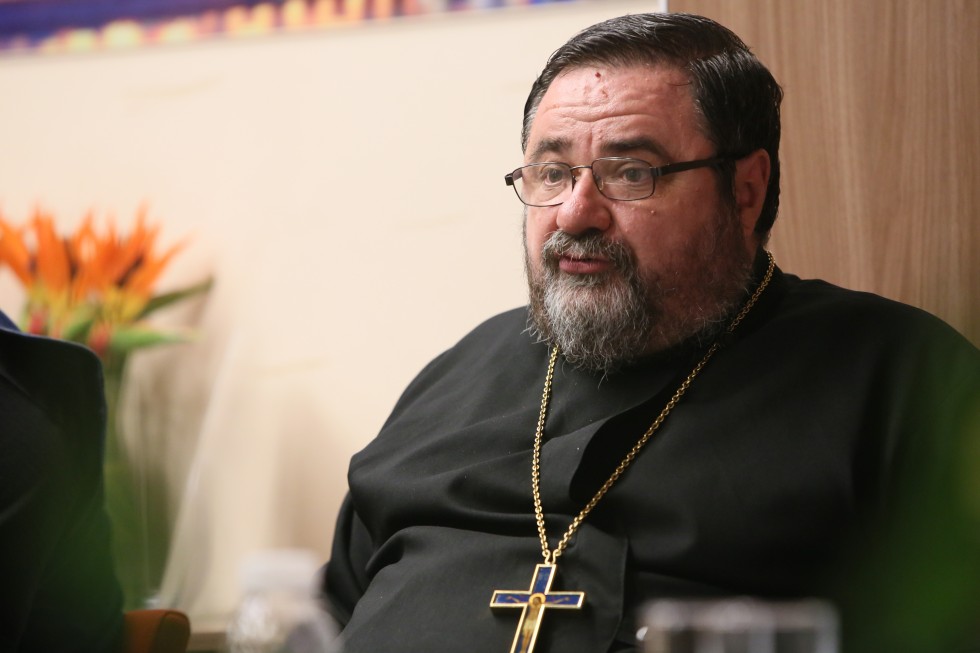
Fr. Georgy Mitrofanov
Fr Georgy Mitrofanov, who heads the department of Church History at the Orthodox seminary in Saint Petersburg (SPb Dykhovnaya Akademia), shared his personal experience of revolution by comparing the lives of his “two grandfathers”. “In fact, one never really became my grandfather, since while he – a military officer – was still only engaged to my grandmother, he was killed in the first world war. The other, who became my real grandfather and married my grandmother in the 1920s, successfully sat out the entire first world war and the civil war and later became a Soviet bureaucrat,” said Fr Georgy. “Comparing these two men, I can come to some conclusions. My real grandfather was, of course, a good man, but probably not as good a man as the officer who died and failed to marry my grandmother. It is noteworthy, that they both died alone, killed by shrapnel – the officer in the course of an artillery duel involving an armored train, in 1919, and my real grandfather in the battle of Stalingrad in 1942. And they both died on the same day – the 21st of September.
Fr Georgy reminded us that in asking the question about whose ancestors we ourselves will become, it is important to remember that from 1917 onward, an enormous number of good Russian people lost their lives, while many not-so-good Russians remained alive and tried to get on under the conditions in which they lived. “And most of us are descendants of the latter category.”
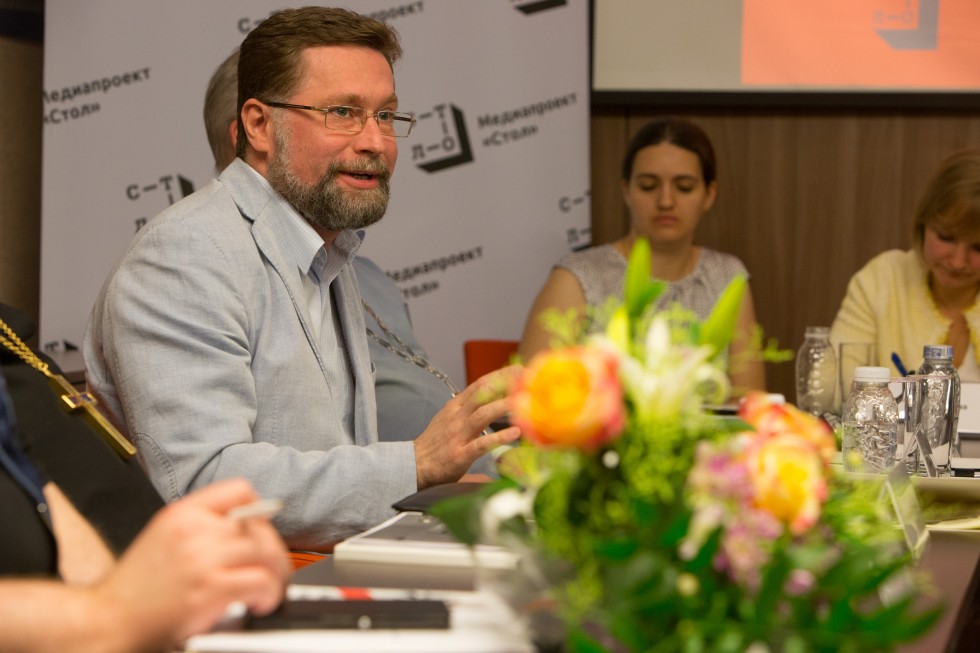
Dmitry Gasak
The roundtable participants confirmed one particular conclusion of the investigation: the church has not made any clear evaluation of the events of 1917, nor are their constructive discussions taking place on that theme within the church or society. “There are individual Christians who are making evaluations, but there is no single clear voice to be heard, because there isn’t agreement about the spiritual nature of the revolution itself,” remarked Dmitry Gasak, Chairman of the Transfiguration Brotherhood and Vice Rector of Saint Philaret’s Orthodox Christian Institute. “When we speak of the church, we have a hard time imagining what that really is…what subject of speech we really have in mind,” he clarified. In Gasak’s opinion, we need community in order to work toward spiritual, ecclesial evaluations on one thing or another, and not simply statements by official church representatives.”
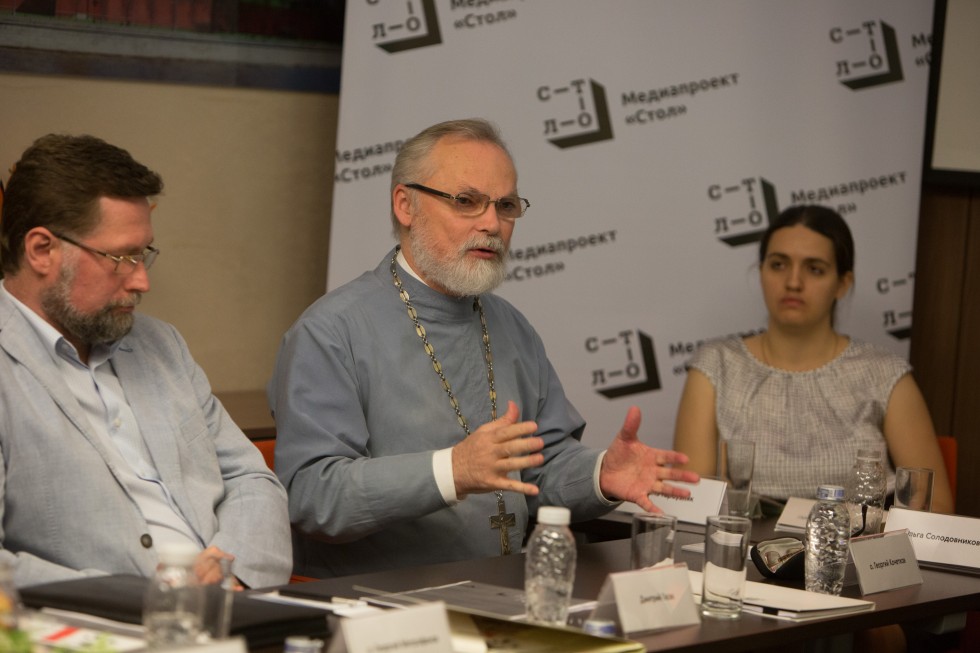
In the centre – Fr. Georgy Kochetkov
Fr Georgy Kochetkov, the Rector of Saint Philaret’s Orthodox Christian Institute, remarked that the most terrible loss wreaked by the Revolution of 1917 was the loss of people. “Yes, an enormous number of churches and historical monuments were destroyed, but the most horrible thing is the loss of people, many of whom were the best that our society and nation had to offer. The number of people who lost their lives is innumerable – the loss touched every family. For this reason, the topic of revolution is spiritual, existential and personal, and relates to past, present and future. It would be good if we contemporaries knew this fact and returned to memory the stories of our forbearers.”
Others who took part in the discussions include:
Roman Lunkin, Head of the Center for Study of Issues in Religion and Society at the Russian Academy of Science’s Institute of Europe;
Sergei Filatov, Sociologist of Religion and head of a project entitled “An Encyclopedia of Modern Religious Life in Russia”;
Andrey Melnikov, Editor-in-charge of the periodical “NG-Religion”;
Svetlana Solodovnik, Publicist and Reviewer for the periodical “Everyday Journal”; Evegeny Strelchik, Editor-in-chief of the “Journal of the Moscow Patriarchate”;
Aleksey Malashenko, Head of the Dialog of Civilizations Research Institute;
Yuri Danilov, Head of Information and Analysis for the synodal department for interrelations between church and media of the Russian Orthodox Church.
The roundtable took place in the immediate run-up to the annual Transfiguration Meetings Festival, which is traditionally held at the end of August at the Sokolniki Convention Center. The meeting of this panel of experts was organized by the “Stol” Media Project and its center for analysis, s-t-o-l.com.
